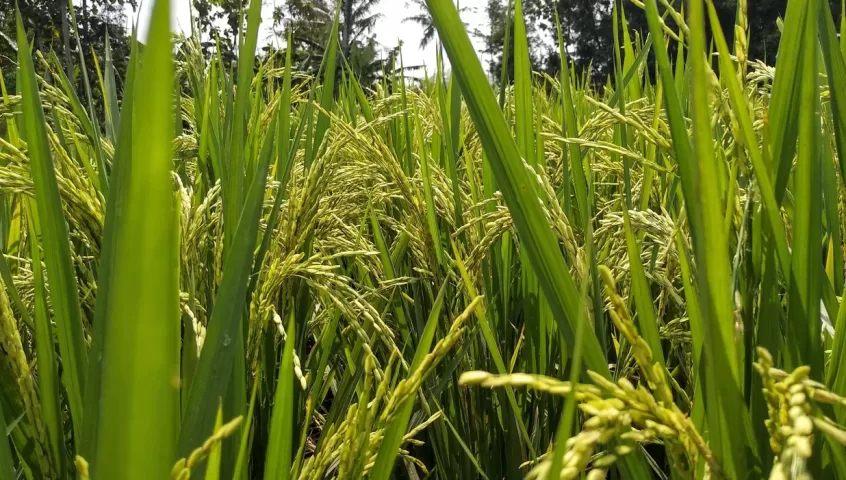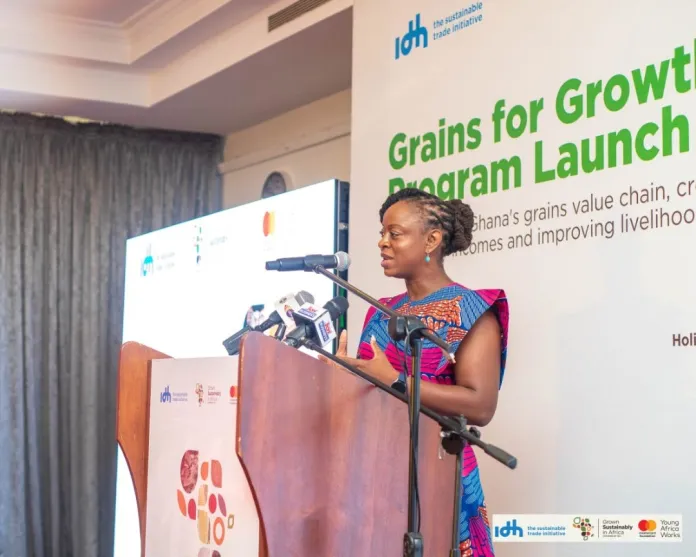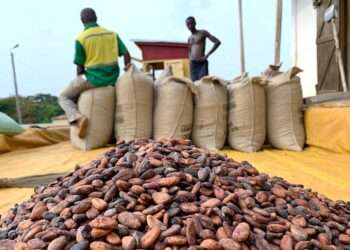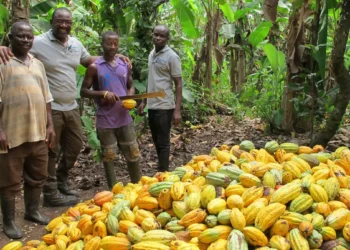The “Grains for Growth” program has revitalized local small and medium enterprises and improved the lives of farmers, creating a competitive edge in the marketplace.
This initiative is a collaboration between the Mastercard Foundation and IDH, focused on transforming Ghana’s grains sector.
The program aims to build inclusive and economically viable grain supply chains. By doing so, it hopes to create employment and entrepreneurship opportunities, boost incomes, and enhance the livelihoods of farmers, particularly targeting women and youth.
In Northern Ghana, grain production has long been dominated by informal supply chains.
This has resulted in limited access to affordable financing, mechanized farming, and quality agricultural inputs.
These challenges have adversely affected the quality and quantity of grain production and hindered small and medium enterprises from attracting and retaining premium-paying buyers, thus limiting commercial investments.
Through “Grains for Growth,” these barriers are being addressed, paving the way for improved grain production and stronger economic prospects for the region.
The program is focused on maize, rice, millet, fonio, and sorghum supply chains.
Key components and expected outcomes of the program include diagnostic and service delivery model (SDM) analyses, which evaluate and enhance service delivery to optimize efficiency.
The program also provides technical, operational, and managerial support for small and medium enterprises, improving production and mechanization to boost productivity.
Furthermore, digital tools are being utilized to better engage smallholder farmers, facilitating business development and offering financial solutions to make resources more accessible.
Success Stories of The Program

Mr. Robert Asugure, the Country Director for IDH, said they believed that there was a common interest to “create more impact on a scale and that was why they partnered with the Mastercard Foundation to develop the program.”
He mentioned that the program successfully reached many farmers, off-takers, and brands, facilitating industrial processing and enhancing food security.
Mr. Razak Bongo, a beneficiary, shared that life was difficult before IDH’s support. He struggled to afford farm inputs, which limited his farm’s output.
Mr. Alhassan Nuhu, a Project Coordinator for DEGAS, explained that as an Agritech company, they provided farmers with essential farm inputs.
He noted that IDH partnered with DEGAS through the Mastercard Foundation, enabling DEGAS to mobilize support and offer training packages to improve farming activities in their communities.
Mr. Hikimatu Kadiri, CEO of AgroMart Limited, shared his journey into farming, which began after he finished senior high school. He secured five acres of land, but the late arrival of a tractor for plowing affected his yields.
Benefiting from the Mastercard Foundation program, Kadiri received a contract worth $23,000 to supply 200 bags of NPK fertilizer and 200 bags of millet seeds. This support significantly boosted his farming operations.
He said in the 2022/2023 crop season, he was again awarded a contract to provide mechanization service and supply inputs with a total amount of 47,000 dollars.
In the first year of the program, 20,924 smallholder farmers from seven SMEs in the maize, rice, millet, and fonio commodity chains in Northern Ghana received support to cultivate grains on a combined total of 19,124 acres of farmland.
The program’s contributions have provided essential support mechanisms amid a challenging landscape.
Farmers have faced a drastic increase in production costs due to high inflation, expensive seeds and fertilizers, limited mechanization services, weather uncertainties from climate change, and the depreciation of the local currency.
These factors deterred many farmers from producing grains in 2022, making the program’s assistance even more crucial.
READ ALSO: EC Criticized over Reporting Errors in Voter Registration Figures






















